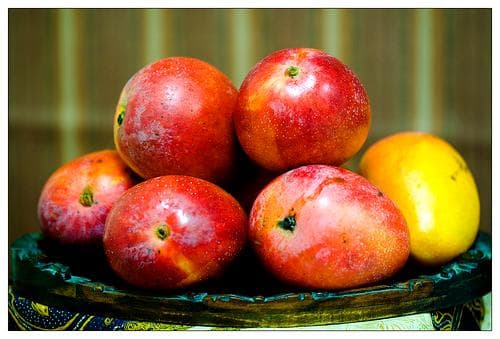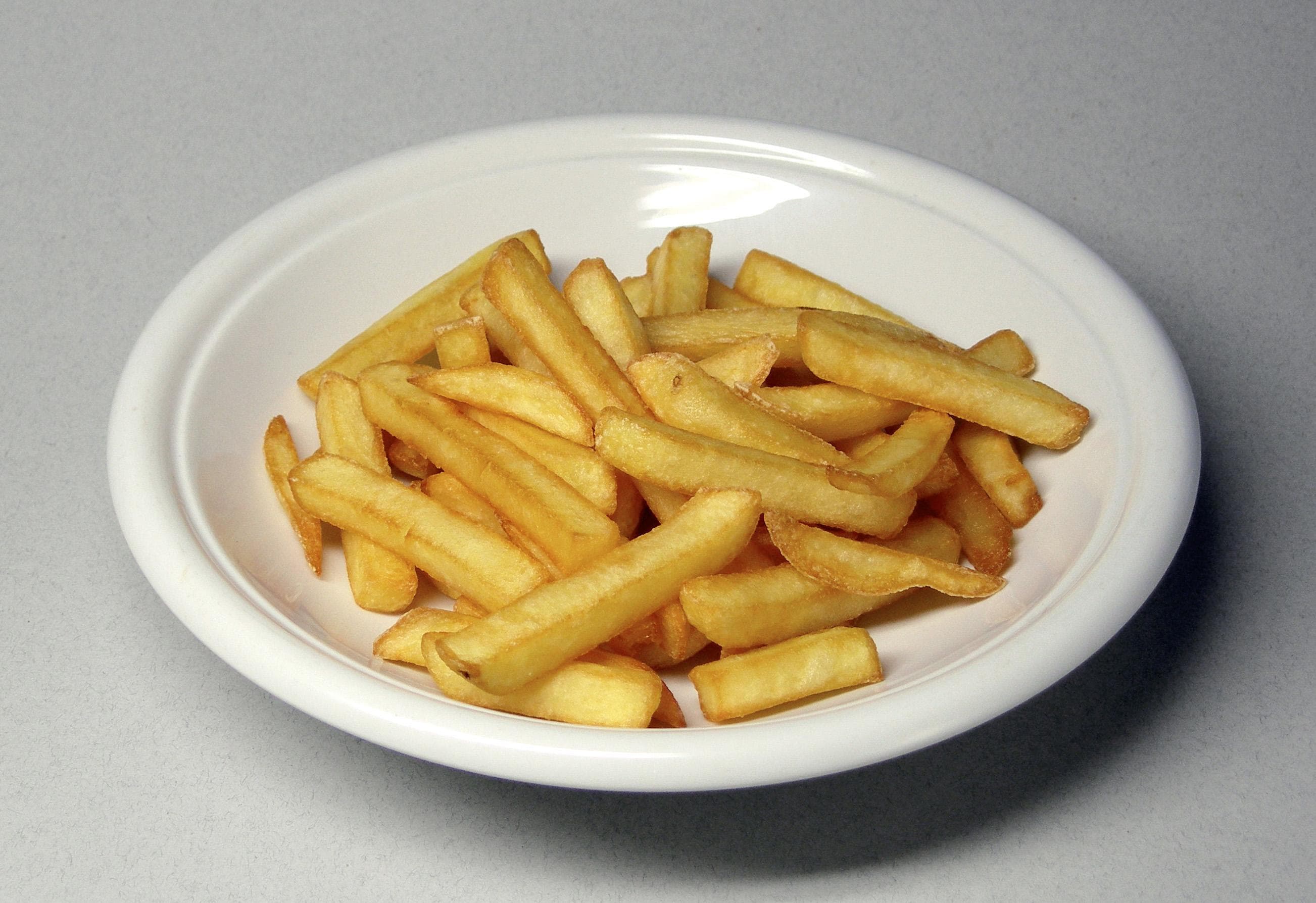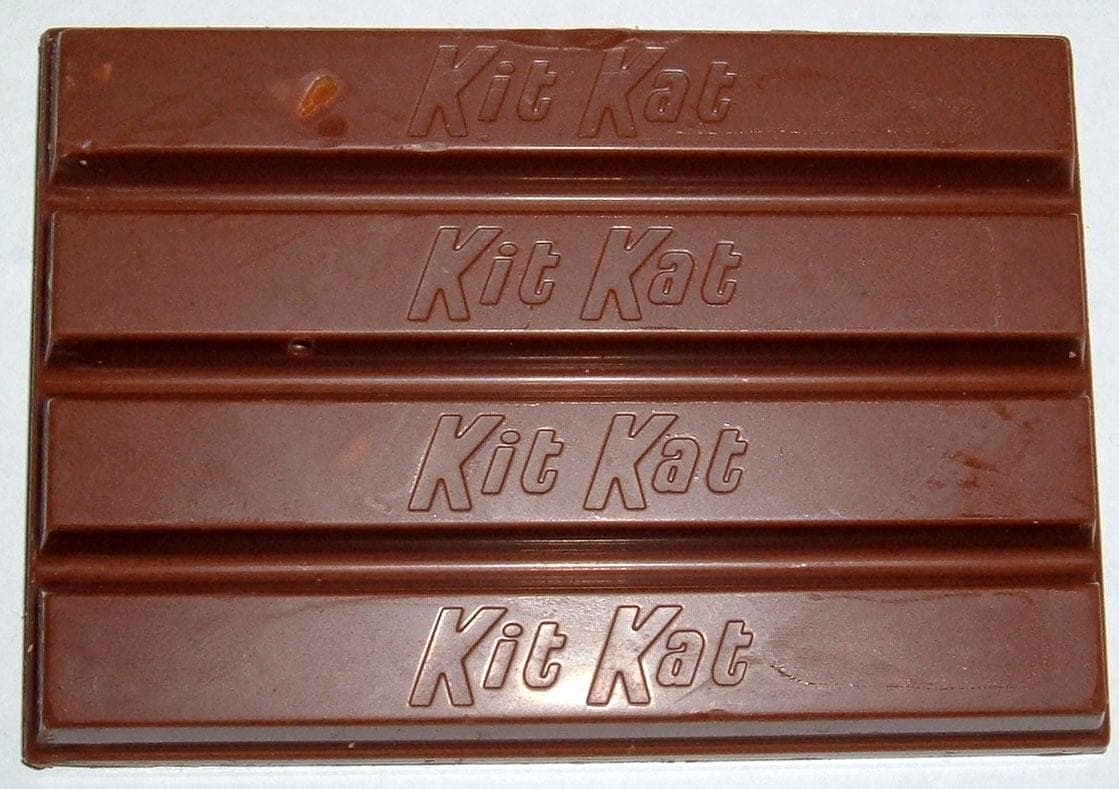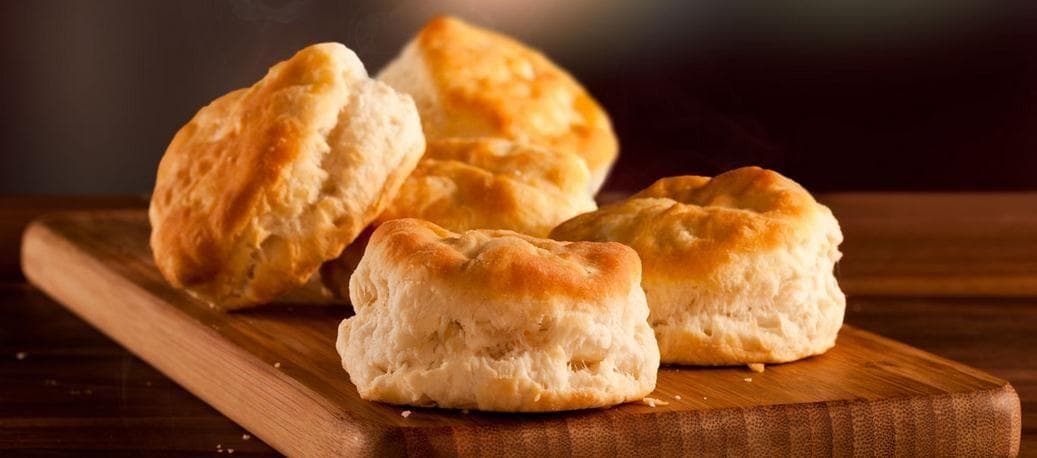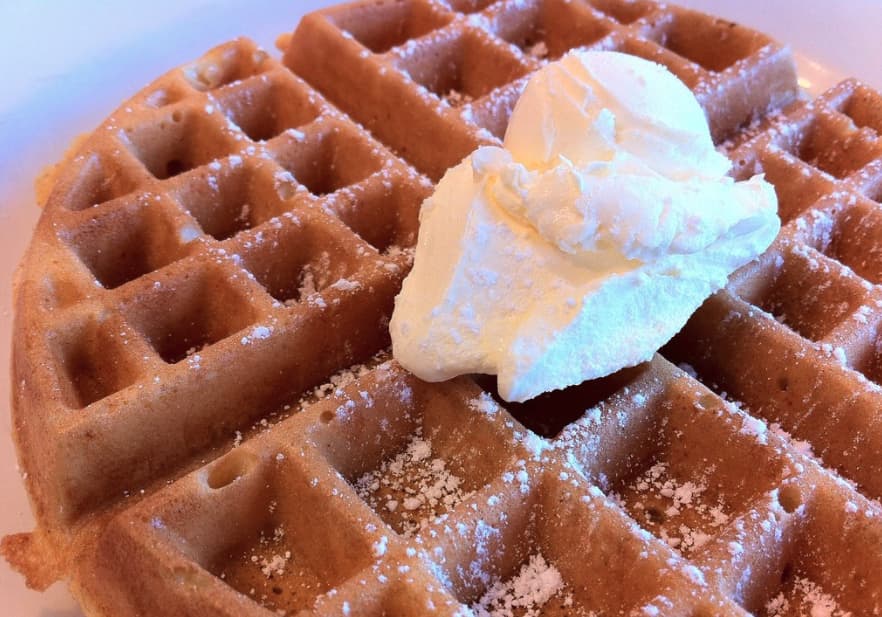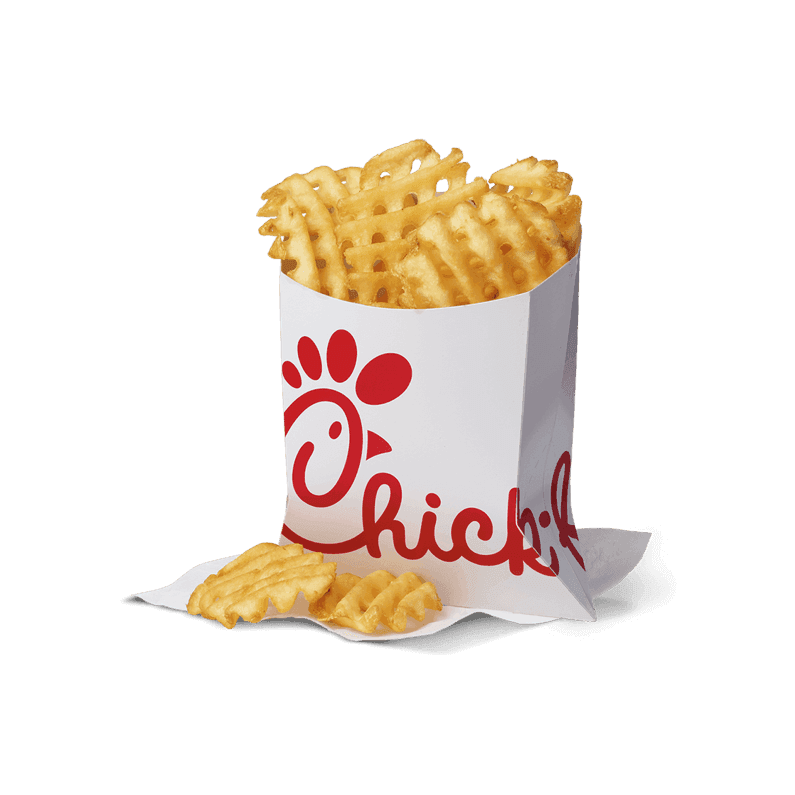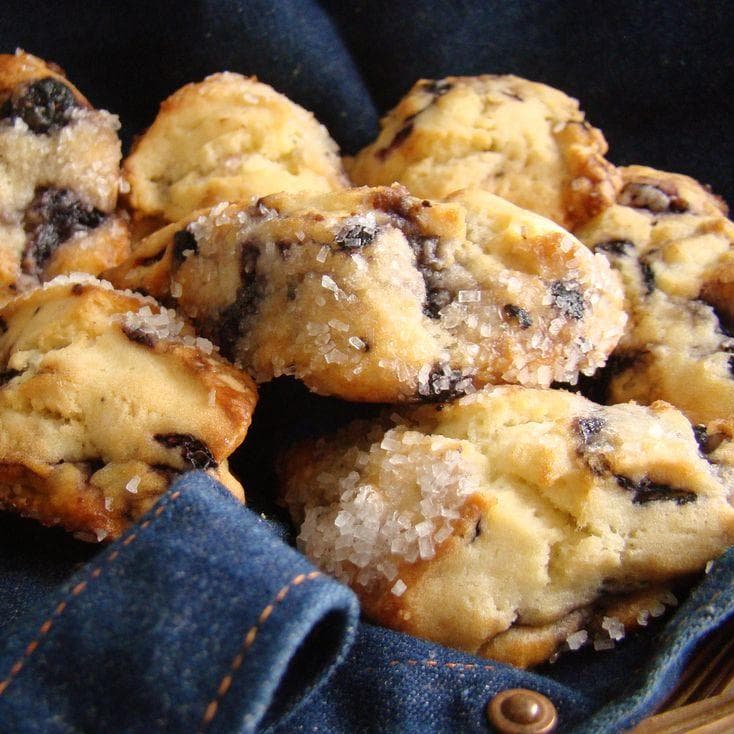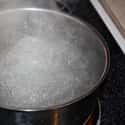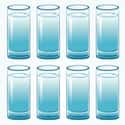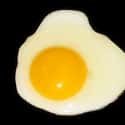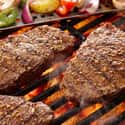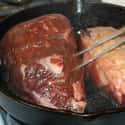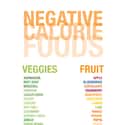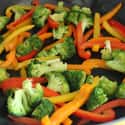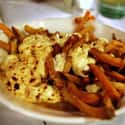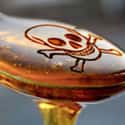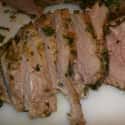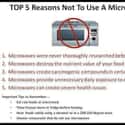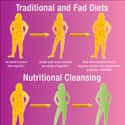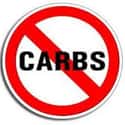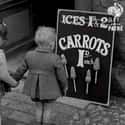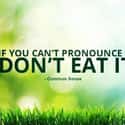-
(#1) Adding Salt to Boiling Water Makes It Boil Faster
This is a persistent myth that's believed by both home cooks and professional chefs. While it is technically true, practically speaking, it's not. Adding salt to water will change its boiling point, but only by a tiny fraction. You'd need to add so much salt to a pot of water that it would ruin whatever you're cooking.
-
(#2) You Should Drink 64 Ounces of Water Every Day
A fragment from a government report from 1945, the idea that everyone needs to drink 64 ounces of water was seized upon by anti-soda crusaders. But what people forget is that the 1945 study said that while that much water was best, people would get most of it from prepared food. There's no scientific research that confirms how much water people need, and you don't need to drink anywhere near that much. It is still better for you than soda, though.
-
(#3) Eggs Are Full of Cholesterol
While it's traditional for people with high cholesterol to avoid eggs, it's not necessary, and not really even helpful. Eggs are high in cholesterol, but they have little saturated fat, and no trans fat - along with high quantities of over a dozen vitamins and minerals. And little of the cholesterol in eggs actually makes it into a person's bloodstream. If it's a serious issue for you, avoid the yolks and just eat the whites.
-
(#4) Grilling Meat Can Lead to Cancer
This myth seems to stem from the discovery of small amounts of the chemical acrylamide - a compound used in a number of industrial and manufacturing contexts - in some burned foods. While acrylamide has been linked to nervous system toxicity and fertility issues, you'd have to eat so much grilled meat to have a problem that you'd be dead long before you had any toxicity issues. Not to mention that acrylamide is found naturally in many foods.
-
(#5) Seared Meat Keeps Its Juices In
It's actually just the opposite. The idea of searing meat to seal in its juice stems from a 19th century experiment conducted using two pieces of meat, one of which had been soaked in water before it was grilled. Naturally, this meat was wetter than the meat that had simply been grilled. In reality, seared meat is actually less moist than grilled meat. If you like the taste of seared meat, that's great and what you should eat - just not for its moistness.
-
(#6) Aluminum Cookware Gives You Alzheimers
This is false, and mostly the stuff of conspiracy theories. No link has been found between aluminum cookware and Alzheimer's Disease. While some research points to Alzheimer's sufferers having higher concentrations of aluminum in their brains, the studies on this are flawed and contradictory. Aluminum is also a natural metal found in trace amounts in virtually everything, so avoiding it is impossible.
Other things that don't cause Alzheimer's include flu shots, aspartame, deodorant, and dental fillings.
-
(#7) Certain Foods Have "Negative" Calories
The thinking behind this myth is that certain foods are so low calorie (celery is often used as an example) that eating them burns more calories than it creates - creating a negative calorie situation. While many fruits and vegetables are extremely low in calories, the act of chewing and digesting them has no significant caloric expenditure - so even if you're taking in just 10, you're still only using a fraction of one. Claims by soda companies that their products are "negative calorie" have led to lawsuits and settlements - because they're bogus.
-
(#8) Cooking Vegetables Robs Them of Nutrients
It doesn't. This is a combination of the naturalistic fallacy and misinformation from raw food diet advocates, and it isn't supported at all by scientific research. While it's true that boiling vegetables in water does cause some of their nutritional value to wind up in the water, steaming, sauteing, or grilling vegetables is a way to get around this. Not to mention that cooking vegetables makes them easier to chew and digest. This is why many mammals spend large parts of their waking hours chewing.
-
(#9) Eating Late at Night Makes You Fat
This myth stems from a misunderstanding of how digestion works. A large meal eaten late at night doesn't simply sit undigested in your gut. Your metabolism doesn't just stop and magically turn food into fat when you sleep, though it does slow down. Food is turned into fat because of inactivity - and that can be anything from sitting at a desk to lying down for an afternoon nap. What you eat, how much you eat, and how much you move determines if you get fat - not what time of day you eat it.
-
(#10) High Fructose Corn Syrup Must Be Avoided
From a chemical standpoint, high fructose corn syrup (HFCS) is the same as table sugar. It has the same two primary chemical compounds, glucose and fructose, that sugar does - they're just not bound together. This means HFCS can be blended with different amounts of each, so some HFCS is sweeter than other types. HFCS is primarily used in America for a simple reason - corn is cheaper and easier to grow here than sugar.
Your body processes every type of sugar the same way, and while it's a smart idea to limit your sugar intake in general, limiting one in favor of another is scientifically pointless.
-
(#11) Pork Must be Overcooked to Avoid Parasites
This used to be true, but isn't really anymore. The risk of contracting the parasite trichinosis has all but vanished in the United States thanks to food safety regulations, regular inspections, and better hygiene. The USDA has actually reduced the minimum safe temperature for pork to from 165 degrees to 145 in response to the reduced risk of trichinosis. You still don't want to eat pork raw, but you don't need to blast it into dry, gray oblivion.
-
(#12) Microwaving Food Kills Its Nutrients
Actually, microwaving vegetables is a great way to ensure it keeps its nutritional value. The small amount of non-ionizing radiation put out by a microwave doesn't have the power to alter the molecular structure of what it cooks - only to heat it. It's simply a non-scientific myth that microwave cooking "kills" food that used to be "alive and healthy." There are, of course, things you shouldn't microwave - specifically anything you're giving to a baby, because the cooking can be uneven.
-
(#13) Perioidic Fasting Cleanses the Body of Toxins
This is wrong on a number of levels - and dangerous. It's important to point out that the advocates of cleansing "toxins" are never able to point out what a toxin is or what it does to you - only that you're full of them. But from a scientific standpoint, your body already has a perfectly designed system to cleanse itself of toxic material. It's your kidneys and liver. As long as you're going to the bathroom at regular intervals, eating a well-balanced diet, and exercising, you're doing everything you need to get rid of toxins - and no fasting, juice cleanse, or fad diet will help you do that.
-
(#14) Carbs Make You Fat
They don't, though many foods high simple carbohydrates don't keep you full because of the amount of sugar they contain. Complex carbohydrates, such as those found in whole grains, are an important part of a balanced diet, and should be consumed in moderation - like everything else. It's not the bread that makes you fat, it's eating too much of it. Too many empty calories leads to weight gain, and just having a slice of bread or a bowl of rice isn't enough.
-
(#15) You Should Wash Chicken Before You Cook It
No, you absolutely should not. The majority of bacteria found on raw chicken is found on its skin. Washing chicken doesn't remove or kill it, it only spreads it around your sink and your kitchen. The way to kill bacteria on chicken is to cook it. Save the washing for your hands for when you touch things after touching chicken.
-
(#16) Eating Carrots Makes You See Better
This is a myth created by the World War II era British Ministry of Information to boost public morale by claiming British pilots fending off German bombers could see better because they ate carrots. So war-weary citizens were encouraged to grow carrots to send to the Royal Air Force. They also wanted children to feel like eating vegetables was better than eating sweets, which were strictly rationed.
Somehow it became common knowledge that eating carrots helped your night vision, but there's really no science behind the claim. Carrots don't make your night vision better.
-
(#17) If You Can't Pronounce It, Don't Eat It
This is simplistic chemphobia that became popular thanks to food writer and activist Michael Pollan. In an NPR story from 2008, he advised readers: “Don’t buy products with more than five ingredients or any ingredients you can’t easily pronounce.” Because of this, we've been left with a notion that "chemicals" are always bad, and "natural" things, i.e., free of chemicals, are always good.
But this doesn't take into account that everything is made of chemicals, and that many extremely important chemical compounds, amino acids, and vitamins have long, hard-to-pronounce names. If, for example, you see "Cyanocobalamin" on an ingredients list and avoid it, you're avoiding a form of vitamin B12. Likewise, if "Eicosapentaenoic acid" scares you, you're worried about an omega 3 fatty acid that's good for your brain. Foods should be eaten or avoided based on their nutritional contents, not the number of letters in some of their ingredients.
New Random Displays Display All By Ranking
About This Tool
It is normal that people want to choose the best and most nutritious foods. Consumers have started searching online stores and supermarkets for all kinds of foods with magical effects. In fact, we must reconsider the choice of food, because some of them are unhealthy. Some people are too good at creating food myths, and these myths are only created by their own perception, without any scientific basis.
Let's take a look at some of the most common food myths and the truth. The generator displays random 17 food myths about some ordinary things, such as eggs, salt, grilling meat, etc.
Our data comes from Ranker, If you want to participate in the ranking of items displayed on this page, please click here.

